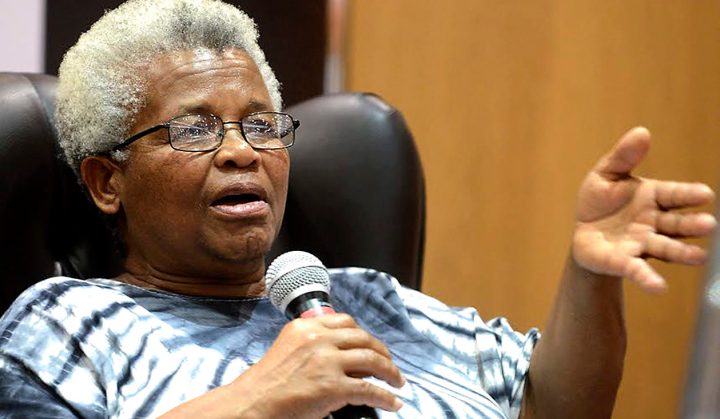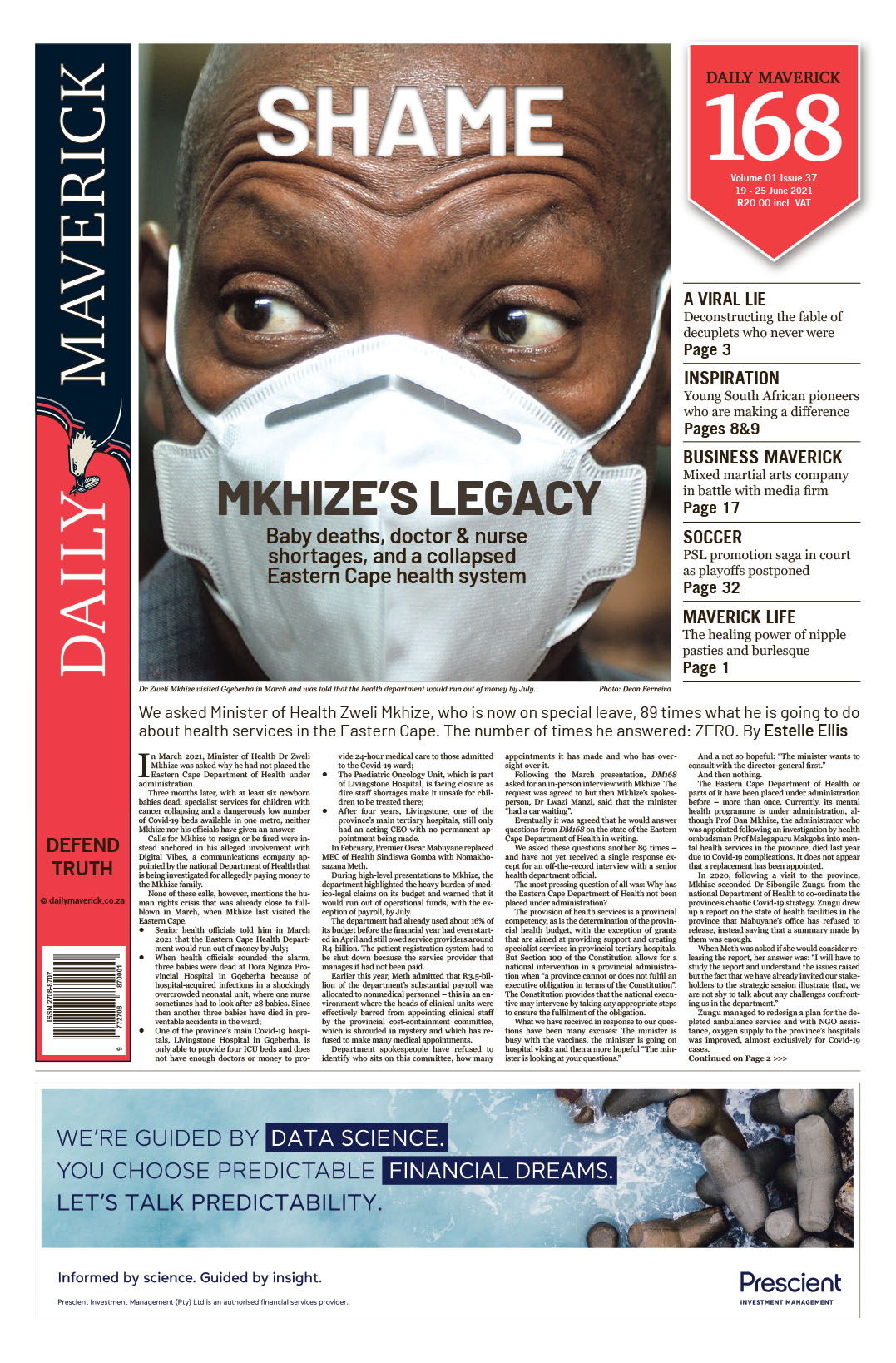DM168 REFLECTION
Rural rights victory over Ingonyama Trust would please late activist mam’Sizani Ngubane

That the Ingonyama Trust has been found exploitative and the minister remiss in her duties is symptomatic of a bigger malaise at play here.
First published in the Daily Maverick 168 weekly newspaper.
Last year I had the absolute privilege of interviewing mam’Sizani Ngubane, a towering giant of rural women’s rights, after she received the prestigious Martin Ennals Award recognising her humanitarian work. This was a few weeks after the National State of Disaster had been announced and as a result, I was not able to conduct the interview I had been so excited to do in person.
Ngubane, who founded the Rural Women’s Movement (RWM), was struck down by Covid-19 a few days before Christmas last year, a tragedy that sent a ripple of shock and sadness through rural and international civil society networks.
At the time of her death, she had been spearheading the fight against the Ingonyama Trust’s unconstitutional leasing out of land and charging of rental amounts to the rural people of KwaZulu-Natal under the false pretext that the land belonged to the king.
Ngubane and her organisation were also fighting the fact that the lease agreements did not allow for women to own land and instead demanded that a male relative sign for land on their behalf, a destructive function of the patriarchy.
By definition, patriarchy is a social system in which men hold primary power and predominate in roles of political leadership, moral authority, social privilege and control of property. This social system has no place in a constitutional democracy like South Africa.
According to South Africa’s customary law, the land belongs to the people, and traditional leaders hold it in trust as custodians of the land. Also, the Constitution, as the supreme law of the country, says that all are equal before the law and that the state may not unfairly discriminate against anyone.
Traditional leaders are not a law unto themselves and are subject to customary law as engendered in the Constitution.
In my interview with Ngubane, she lamented how rural and traditional leaders considered her and the women in RWM a thorn in their side. “As one of the RWM leaders I have been given a name by some traditional leaders – who call me ‘a woman who hates traditional leaders’ – which is not true – I don’t hate the traditional leaders, I hate how most of them discriminate against women and girls… We are seen by some men as a group of unruly women who don’t know or respect their culture.”
Everybody has been celebrating the judgment declaring that the Ingonyama Trust was illegally leasing out land to the rural people of KZN, but it is also important to note that the person who has ultimate oversight over land affairs and – by extension – how the trust conducted itself, is the minister of rural development and land reform.
The minister was found to have breached her duty to ensure the trust’s compliance with the Constitution, specifically Section 25(1), which states that no one may be deprived of property except in terms of law of general application, and no law may permit arbitrary deprivation of property; and Section 25 (6), which says: “A person or community whose tenure of land is legally insecure as a result of past racially discriminatory laws or practices is entitled, to the extent provided by an Act of Parliament, either to tenure which is legally secure or to comparable redress.” The judgment also goes on to say that Section 25 is to be read with Section 7(2) which says that the state must respect, protect, promote and fulfil the rights in the Bill of Rights.
So what does it mean when the custodians of tradition and culture obscure those rights for their own benefit, subjecting their constituents to a life of impoverishment and, in the case of Ngubane, intimidation for asserting the rights of rural women in particular?
Further, what does it mean when the minister opposes an application to fulfil her obligations as stated in the Constitution to which she has pledged allegiance? And to what extent does she owe us an explanation as to why she neglected her duties of oversight and, once this was pointed out, why she defended that position by opposing the application?
The Ingonyama Trust victory has set a precedent for other issues of land trusteeship and the extent of the powers of traditional leaders according to the law. It should not only be seen as a victory for rural people, but also a further assertion that when people organise against an injustice it yields more success than whingeing about it at dinner parties or braais.
That the Ingonyama Trust has been found exploitative and the minister remiss in her duties is symptomatic of a bigger malaise at play here. It is a crisis of leadership that has commodified its people and failed to safeguard their constitutional rights.
Ngubane’s death was a lonely and avoidable death. She died after having waged a courageous 30-year war against destructive patriarchal practices that exploited rural people and excluded women from owning property. She was ostracised from the community she loved enough to put her life on the line for it. It is a pity that she died before witnessing the victory of her courageous struggle, but she will always be a symbol of the calibre of leadership South Africa deserves. DM168
Zukiswa Pikoli is a journalist at Maverick Citizen.
This story first appeared in our weekly Daily Maverick 168 newspaper which is available for free to Pick n Pay Smart Shoppers at these Pick n Pay stores.





















 Become an Insider
Become an Insider
Wouldn’t it be wonderful if sensible and compassionate people could GIVE title to the land to those who have been farming it for generations? Simply grant them title deeds, and enable these hard working folks to keep on farming their land.